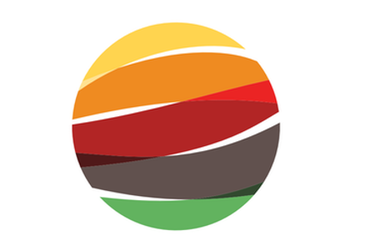
Humanity United was founded with the guiding principle that all humans possess inherent dignity. For many years, our work has focused on the systems that contribute to human exploitation and violent conflict in locations around the world. This focus has required us to grapple with underlying issues like the role of trauma in conflict, the importance of local agency, and accountability, among others. Unfortunately, like many US-based organizations, we never explicitly confronted the role of structural racism in our work, in our own communities, how it impacts our own partners and staff, and how it also contributes to systems of exploitation and violence in the United States and around the world.
Systemic and institutional racism, rooted in a culture of white supremacy, continues to be an inescapable reality of daily life for Black, Indigenous, and Persons of Color (BIPOC), particularly here at home. Acknowledging this reality has required us to closely examine our mission and the focus of our work. We have concluded that if we hope to change systems of exploitation and violence, if we hope to contribute to a more just and equitable global society, we must work at home as well as abroad.
Last year, we supported organizations focused on community-level racial justice and equity efforts with the goal of building safe and thriving healthy Black communities. Today we are announcing an additional $1 million in funding to further support racial justice organizations, which will be distributed over the next year.
Developed and led by Humanity United’s Black Caucus (HUBC), HU’s exploration on Racial Justice and Equity is striving to heed the calls from the racial justice movement to help address conditions and systems that have long harmed BIPOC lives. Our work will be guided by Humanity United’s focus in supporting everyone’s basic dignity and human rights and our locally-led approach, which prioritizes local agency and community expertise. We are entering this space with humility, and a commitment to better understand how we can contribute to advancing racial justice and equity.
This work will initially focus on two pillars: Thriving Communities and Building Power. These pillars are viewed not as individual subsets but as interconnected areas of work that will benefit from our investment. The HUBC specifically chose to work on issues affecting “communities” and harnessing “power” because of HU’s deep history in engaging at the community level to address challenges, as well as our belief that local, community change involves building and shifting power:
- Thriving Communities: There is ample evidence that equitable access to high-quality services and resources can lead to better outcomes for BIPOC communities. These communities often have existing networks and community-based organizations that, through years of experience, can identify and address issues that are directly affecting the marginalized and underserved communities we wish to serve. However, too often these efforts are underfunded, disconnected, and work in isolation to solve the complex challenges they face. We will invest in community-led organizations addressing interconnected social issues so that they may continue to tackle immediate (local) challenges that can transform their own communities.
- Building Power: The United States’ founding principles embrace the ideals of freedom and equality, but it is, in fact, a nation built on the systematic exclusion and marginalization of BIPOC communities, particularly black communities. Many laws and public policies, which should serve as the markers that highlight and guide progress as a nation, were instead designed explicitly to prevent BIPOC from fully participating in society and systematically suppressed their power. The inevitable result is a democracy that is distorted in ways that concentrate power and influence. This concentration of economic, social, and political power has resulted in BIPOC communities of color struggling to build wealth, participate in democratic processes, and hold institutions accountable. We recognize that individual and community wellbeing requires us to combat systemic racism by building the economic, social, and political power within communities of color.
As part of this effort, we will collaborate with organizations to determine key needs of BIPOC communities to better target grantmaking and support. Equally important, we will share ideas, resources and gain knowledge to improve our own practices. We will be on a learning and listening journey to understand how to best support local organizations as they develop and/or advance their work in their communities. For the first year of this exploration, we will center the work in our backyard, Washington, DC, while also engaging in conversations with other communities where we have existing relationships.
In early 2022, we’ll be sharing the names of the organizations we’ll be supporting as well as publishing information about Humanity United’s own internal DEIJ work.